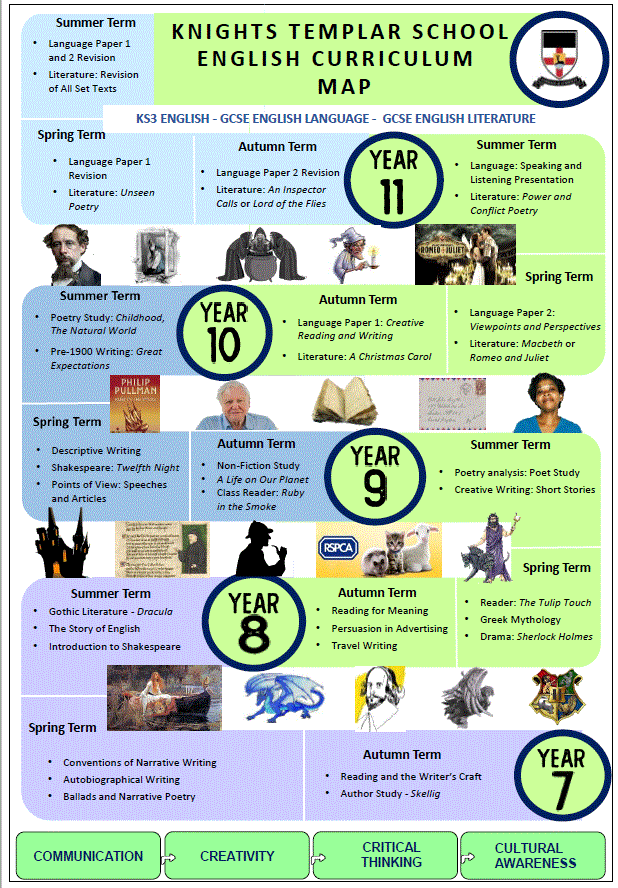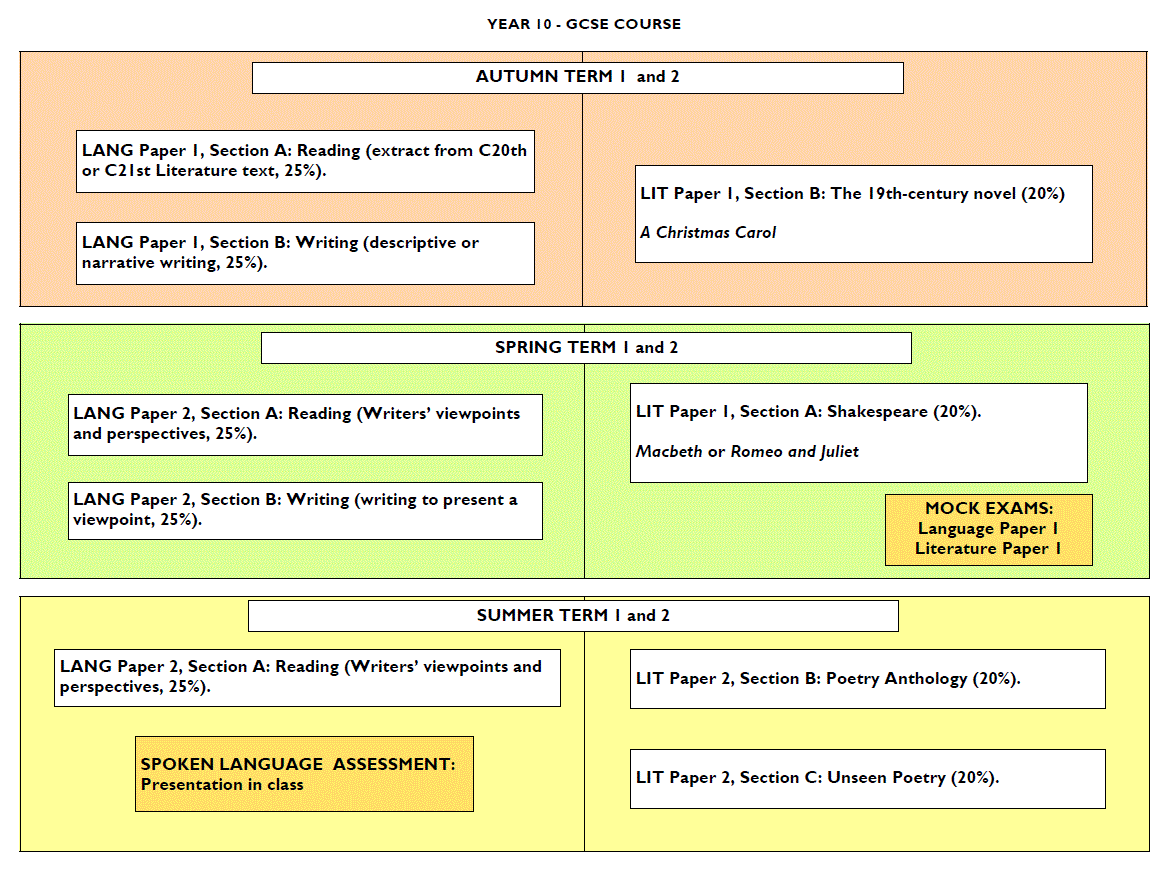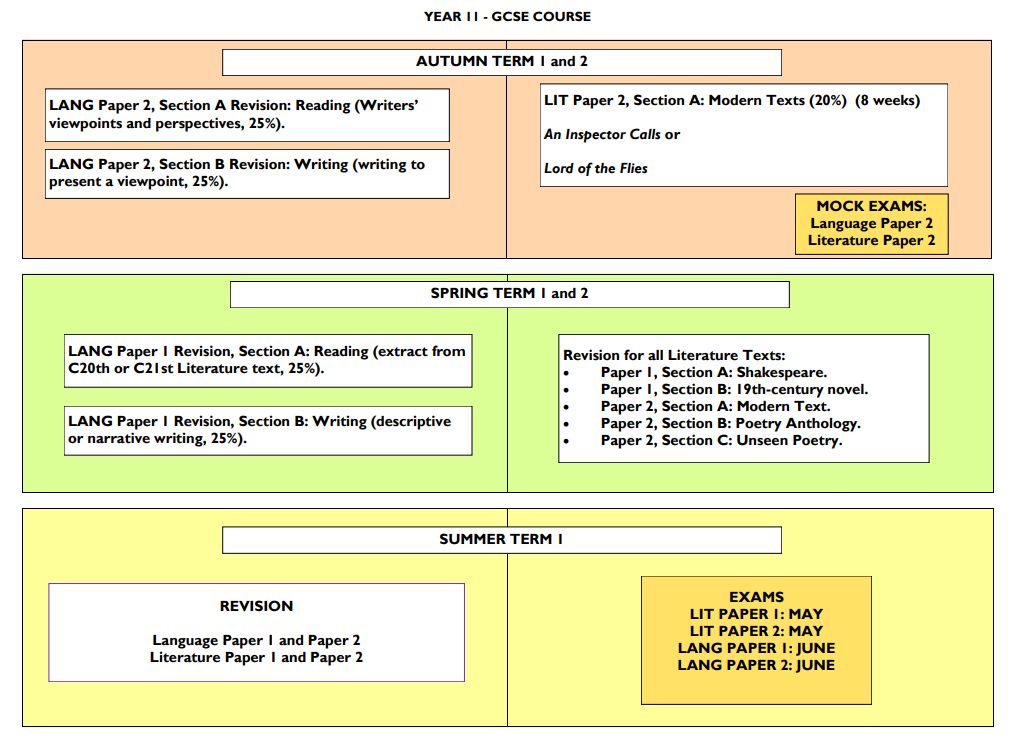Mathematics - Year 7
Click here to return to our English curriculum home page
Below you will find more specific information about the curriculum in English Literature for Years 10 and 11 students, explaining to you what students will learn, when, why and how. There is also information about how parents/carers are able to support students in their learning, extra-curricular opportunities in this subject and how mathematics links to other subjects and the wider world.
|
Subject Key Concepts #1 Creativity#2 Critical Thinking#3 Communication#4 Cultural AwarenessPlease click here for Subject Key Concepts. |

Please click here for PDF English Learning Journey |
Curriculum Overview for the year
|
|
Useful Documents:
Please click here for a PDF of curriculum overview for Year 10 and 11.
While this information covers a broad range of areas, please do get in touch with the Subject Leader Mrs Weston if you have any questions.
Please click on the questions below to find out more.
Which exam board will students be examined by?
AQA
How are groups organised?
Classes are set according to ability.
Students have 9 one-hour lessons per fortnight.
How will students learn at this level?
- Reading poetry, prose and drama texts
- Watching film and live performance versions of texts.
- Studying exemplar answers.
- Working collaboratively with texts.
- Researching contexts of texts.
- Debating and expressing points of view.
- Responding critically and evaluatively to reading.
- Practising written responses.
How will students’ learning be assessed at this level?
Through two examinations
English Literature Paper 1:
Shakespeare and the 19th Century Novel
Section A: Shakespeare
Section B: The 19th Century Novel
You will answer one question on each text, starting with a given extract then writing about the text as a whole
English Literature Paper 2:
Modern Texts and Poetry
Section A: Modern Texts
You will answer one question on your set text.
Section B: Poetry Anthology
You will answer a question on a poem printed in the Exam paper, comparing it to another poem from the poem anthology.
Section C: Unseen Poetry
You will answer two questions, one on the first unseen poem and one comparing the methods the writers use in two poems.
You will be given a number of assessment tasks throughout the course to assess your learning.
When do key assessments take place?
Year 11 mock exams – December/January
Year 11 exams – May
Assessment tasks throughout the year.
How can parents/carers support students’ learning?
- By encouraging the reading of a range of pre-1900 and modern fiction writing and discussing its language use, ideas and merits.
- By reading the set texts to enable shared discussion on key themes and characters.
- By watching film versions and live performances of texts together
- By reading responses to questions and offering constructive feedback on communication skills and presentation of ideas.
What equipment do students need for this subject?
Writing equipment
How does this subject link to other subjects?
- Literacy – all subjects
- Analytical skills – most subjects
- Communication skills – all subjects
What websites or resources may be helpful to support students’ learning?
AQA Exam Board website
BBC Bitesize
York Notes or other revision guides on the set texts
What extra-curricular or enrichment opportunities are available for students in this subject at this level?
KTS Best Books – write a review for publication on the KTS website
Theatre visits
What sort of careers can this subject lead to?
- Journalism
- Teaching
- Freelance writing
- Any career requiring high level literacy skills
What does student work look like in this subject at this level?
How does this subject support a broad and balanced curriculum, meeting the needs of all students, and developing traditional core skills?
Broad and balanced:
We cover a wide range of fiction including pre-1900 texts and texts from other cultures. We discuss a range of ideas, beliefs and attitudes and explore life experiences and pupil responses to texts in depth.
Meeting the needs of all students:
We differentiate appropriately in all lessons, adapting unit tasks and all assessments to ensure they are challenging and accessible to all pupils.
Texts are selected according to the ability, strengths and interests of students.
TAs are used effectively to support students and we liaise with relevant agencies/staff to ensure students’ needs are met.
Traditional core skills:
Literacy is at the heart of the English curriculum. We also develop critical thinking skills, encourage the forming and expression of opinion and consider ethics and morality when studying literature in particular.
How does this subject promote creativity, critical thinking, practice, perseverance and resilience, and making links?
Creativity:
We develop thinking skills and encourage students to respond creatively to texts and ideas explored in lessons.
Critical thinking:
We encourage pupils to think about a range of issues, ideas, language use and writers’ intentions throughout the course. They are expected to formulate their own responses and ideas, identifying strengths and weaknesses and expressing their own views clearly and articulately.
Practice, perseverance and resilience:
We encourage drafting and self-editing to enable pupils to identify their own errors and improve the quality of their writing.
We encourage students to complete longer writing tasks on a regular basis to develop writing resilience and read longer, challenging texts and extracts to develop reading resilience. Pupils are encouraged to persevere with challenging tasks and we break down more complex tasks to ensure they are less daunting and more accessible to all students.
Making Links:
Through the study of a wide range of literature texts we link with history to discover the significance of the historical contexts of texts. There are links with geography, science and modern languages as well as ethics and philosophy.
How does this subject encourage enrichment and the development of cultural capital, deep learning, and inclusivity?
Enrichment/cultural capital:
We study a range of extracts from literary texts covering six centuries and diverse themes.
Substance/deep learning:
We study texts written for adult readers. Students are encouraged to think about mature ideas and themes and reflect on a range of issues.
All ideas are fully explored and tested to ensure pupils have a thorough knowledge and understanding of the skills taught throughout the year.
Open and inclusive:
We ensure all literature and non-fiction studied is relatable and accessible to all students. The themes reflect a wide number of concerns and issues, which are always dealt with appropriately and with sensitivity. We actively promote inclusivity in all of our units and within our classroom teaching.








